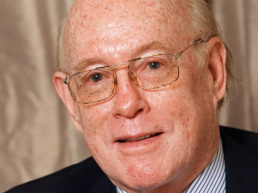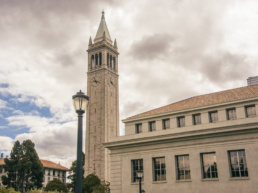Isabel Capeloa Gil is the Dean of the Universidade Católica Portuguesa and President of the International Federation of the Catholic Universities. Upon the return of the Atlantic Talks, we spoke to the Dean about the differences between the higher education system in Europe and the United States and the path that Portuguese universities must follow to reach new heights.
She was born in Ílhavo, but grew up in Macau, where she lived the 25th of April at a distance, along with other remarkable events in the history of the region: the Vietnam War, the fall of Saigon, and the death of Mao Tse-Tung.
She wouldn’t come back to Portugal until 1981, as a teenager. Two years later, she began a career that would leave her linked to the academic field: she graduated in Modern Languages and Literatures and holds a Master’s degree in German Studies from Faculdade de Letras da Universidade de Lisboa, has a PhD in German Studies from Faculdade de Ciências Humanas at the Universidade Católica Portuguesa of Lisbon.
Studied at Ludwig Maximilian Universität, in Munich, Bavaria, and the University of Chicago, Chicago, Illinois, was a Visiting Professor at major universities in Italy, Ireland, Rio de Janeiro, and Macau, and a Visiting Researcher at Wissenschaftskolleg, in Berlin, and the Freeman Spogli Institute for International Studies at Stanford University. Since 2010 she has been an Honorary Fellow of the School of Advanced Studies at the University of London.
Isabel Capeloa Gil evaluates Portugal’s position, given its capabilities, as being excellent, taking into account the evolution achieved in recent decades.
“Our place is great, given what are the country’s capabilities for investment in science. And the truth is that in the last 20 years there has been an investment, a visibility given to the importance of the cultivation of science, to invest in higher education, which has truly transformed the country.” – Isabel Capeloa Gil
However, more needs to be done and, above all, to think differently to advance science in Portugal.
“Nowadays, science is done in network, at supranational levels, and a lot is made of the capacity that each university and each education system has to attract the best globally. We will not be the best for the ability to keep all Portuguese in Portugal, but we will be the best if we maintain an extraordinary pool of Portuguese talent to be trained at our universities and if we are also able to attract an international talent pool to be trained here.” – Isabel Capeloa Gil
The Dean of the Universidade Católica Portuguesa argues that Portugal is already very competitive in terms of science, with enormous talent and development capacity, and points to the Portuguese community in the United States as an asset to which universities should look more.
“The Portuguese community has a huge respect and interest in the connection to Portugal, but we have to work better with the community. We have to be more interested in the Portuguese community in the United States as university institutions. We have to be closer, because for us it is particularly important to be able to attract to Portugal the children of Portuguese-Americans living in the USA.” – Isabel Capeloa Gil
On the differences between American universities, at the top of the world academy, and European universities, Isabel Capeloa Gil explains that there is a cultural difference in its origin. American universities were created by removing the best in Europe, but end up with a greater funding capacity. This is partly because, culturally, there is also a substantial difference: the giving back culture that Americans have in relation to their alma mater.
” [In the US] they feel the need to give back to their Alma Mater what they have received from it, in terms of intangible value, and to give tangible value that compensates for the intangible value they have received. Europe, by different values, does not have this tradition at all. Nor Catholic countries, nor Protestant countries. Because higher education is mostly a state project. There’s a completely different logic.” – Isabel Capeloa Gil
Don’t miss this episode, already available on the platforms where you normally listen to your podcasts. You can also find this episode in the links below.
- Apple Podcasts
- Spotify
- SoundCloud
- Google Podcasts
Related Posts
March 25, 2025
Note of Condolence – Charles Buchanan (1934-2025)
March 24, 2025
Applications Open: FLAD/Saab Visiting Professor at UMass Lowell 2026
Portuguese professors can apply to…
March 17, 2025
FCT and FLAD sign new protocols with the University of California
The objective is to promote academic…


